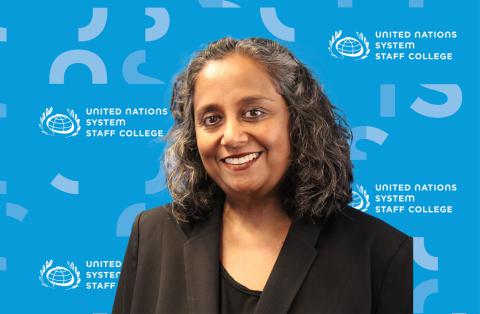COP 27 Insights: Learning from youth and children
One of the most awe-inspiring things about the United Nations Climate Change Conference (COP) is its convening power. This year COP 27 brought together tens of thousands of people from all over the world who represent the voice of countless others – from governments to industry to civil society and citizen groups. The COP provides a platform for dialogue, for the sharing of perspectives and the co-creation of solutions. It demands that we not only SPEAK on behalf of the people and organizations we represent but also LISTEN on their behalf.
Fostering meaningful youth participation
At the conference which took place in Sharm el-Sheikh, we had the opportunity to interact with representatives of children and youth groups and it made us reflect about how we could genuinely engage with youth and children in creating learning to support climate transformations. Often the word ‘youth’ subsumes children, but those who are below 18 are rarely included in the conversations and the decisions.
Engaging effectively with youth requires that we understand how they produce knowledge and how they learn. There is a wealth of evidence that children learn through play, learning how to relate to each other and the world around them. But it’s not just children who learn through play – research shows that people learn best when, together with a sense of agency, the experience is joyful, and meaningfully connects with their lives. And this is why we introduced a lot of play in our sessions at the Resilience Frontiers Pavilion, where we used games, visual aids, and virtual reality tours to stimulate playful discussions as participants “stepped inside” a city in the midst of transformative change. Understanding intergenerational engagement
Being at COP 27 made us reflect that we, as UNSSC, need to critically examine not only how we talk with youth but how we listen to them and how we learn from them – as well as how we learn with them. In most conversations with young people, they sense that they are being told what to do. We need to move away from that mindset to one where the learning journey is a shared, two-way process. By engaging with them in a two-way dialogue about global issues today, we could learn more about their relationship with nature, society, and humanity and their vision of a desirable future world for their generation.
This is not to negate the role of adult authority and experience. Adult guidance can help strengthen and guide children’s actions for the planet. But importantly, adults need to learn to support youth and children in achieving a sustainable future by providing an enabling environment where they can co-create solutions and co-own decisions. We need to not only demonstrate that can they trust us, the adults, but also show that we trust them, the children who will inherit the impacts of our actions, and that we truly believe in their capacity to make good decisions for the planet and for their future.
Watch our interviews with the youth and children here.
UNSSC provides learning opportunities on education . For more information, please visit the UNSSC website or email us at info@unssc.org
